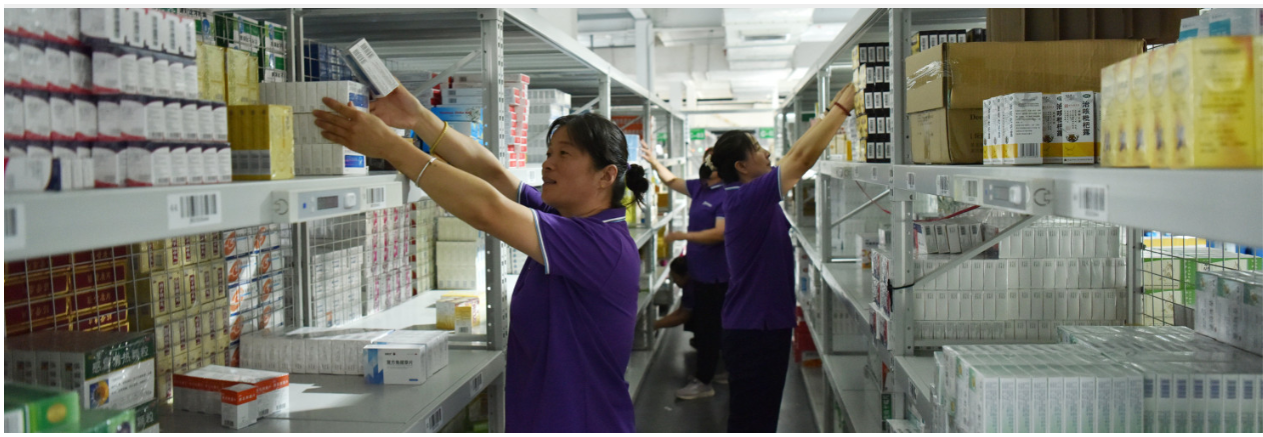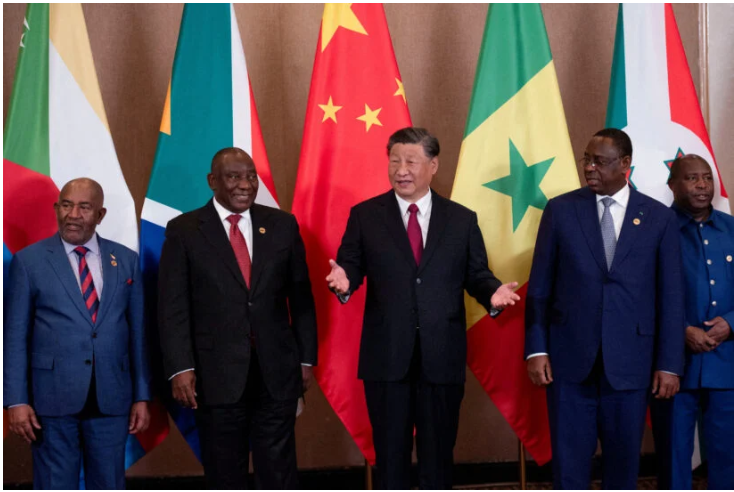 As the global economy becomes more interconnected, Europe’s reliance on China for critical pharmaceutical supplies is drawing attention, raising concerns about supply chain vulnerabilities and strategic dependencies. Simultaneously, China’s increasing foreign investments, particularly in Africa, are reshaping global economic relationships and positioning the country as a dominant player in both global healthcare and Africa’s development.
As the global economy becomes more interconnected, Europe’s reliance on China for critical pharmaceutical supplies is drawing attention, raising concerns about supply chain vulnerabilities and strategic dependencies. Simultaneously, China’s increasing foreign investments, particularly in Africa, are reshaping global economic relationships and positioning the country as a dominant player in both global healthcare and Africa’s development.
In recent years, Europe has become increasingly reliant on China for the supply of essential drugs and pharmaceutical ingredients. China, now the world’s largest producer of active pharmaceutical ingredients (APIs), supplies the raw materials for many of Europe’s critical medications, including antibiotics, painkillers, and treatments for chronic diseases. This growing dependence has raised alarm bells within the European Union, as geopolitical tensions and potential supply chain disruptions could pose risks to public health.
The COVID-19 pandemic exposed weaknesses in global pharmaceutical supply chains, with many European countries facing drug shortages as factories in China and India temporarily shut down. In response, European leaders have called for strategies to diversify suppliers and boost domestic pharmaceutical production, but such initiatives are slow to materialize, leaving China’s pharmaceutical dominance largely unchallenged for now.
However, this reliance extends beyond Europe to much of the world, as China’s pharmaceutical exports have become crucial in maintaining global health systems. For many in the industry, balancing economic efficiency with strategic independence is becoming an urgent priority.
At the same time, China’s economic influence continues to expand, particularly in Africa, where it has become the continent’s largest trade partner and one of its most significant investors. Chinese investments in infrastructure, energy, and mining sectors across Africa are reshaping the continent’s development trajectory. With initiatives like the Belt and Road Initiative (BRI), China has poured billions into building roads, railways, and power plants in African countries, further entrenching its role as a critical partner in the region’s growth.
Beyond infrastructure, Chinese companies are also heavily investing in Africa’s manufacturing, telecommunications, and financial sectors. This influx of foreign direct investment (FDI) is creating new opportunities for economic growth, job creation, and skills transfer, with many African countries benefiting from the influx of capital and technology.
However, some critics argue that China’s growing economic footprint in Africa comes with challenges. Concerns over debt sustainability, environmental impact, and the political influence of China in African governance have sparked debate about the long-term implications of these investments. Nonetheless, many African leaders continue to welcome Chinese partnerships, seeing them as vital to achieving their development goals.
The convergence of China’s expanding influence in both the global pharmaceutical supply chain and its growing presence in Africa is a reflection of the country’s broader geopolitical strategy. By securing its role as a key supplier of essential goods and services whether life-saving medications to Europe or infrastructure to Africa China is positioning itself as an indispensable global power.
For Europe, the challenge lies in balancing its dependence on Chinese pharmaceuticals with the need for greater supply chain resilience. Efforts to diversify sourcing, invest in alternative production capacities, and develop stronger trade ties with other regions, including Africa, are becoming increasingly important in this geopolitical landscape.
 Meanwhile, Africa stands at a crossroads, benefiting from the economic opportunities presented by Chinese investment while navigating the complexities of foreign influence. As China-Africa relations deepen, African countries will continue to play a crucial role in the global economy, with their resources, markets, and strategic positioning making them key players in China’s economic strategy.
Meanwhile, Africa stands at a crossroads, benefiting from the economic opportunities presented by Chinese investment while navigating the complexities of foreign influence. As China-Africa relations deepen, African countries will continue to play a crucial role in the global economy, with their resources, markets, and strategic positioning making them key players in China’s economic strategy.
As Europe grapples with its growing dependence on China for critical drugs, and as Chinese investment in Africa continues to reshape the continent’s economy, the dynamics of global trade and diplomacy are shifting. The delicate balance between opportunity and dependency will define how nations navigate their economic futures in an increasingly interconnected world.
Ennywealth


